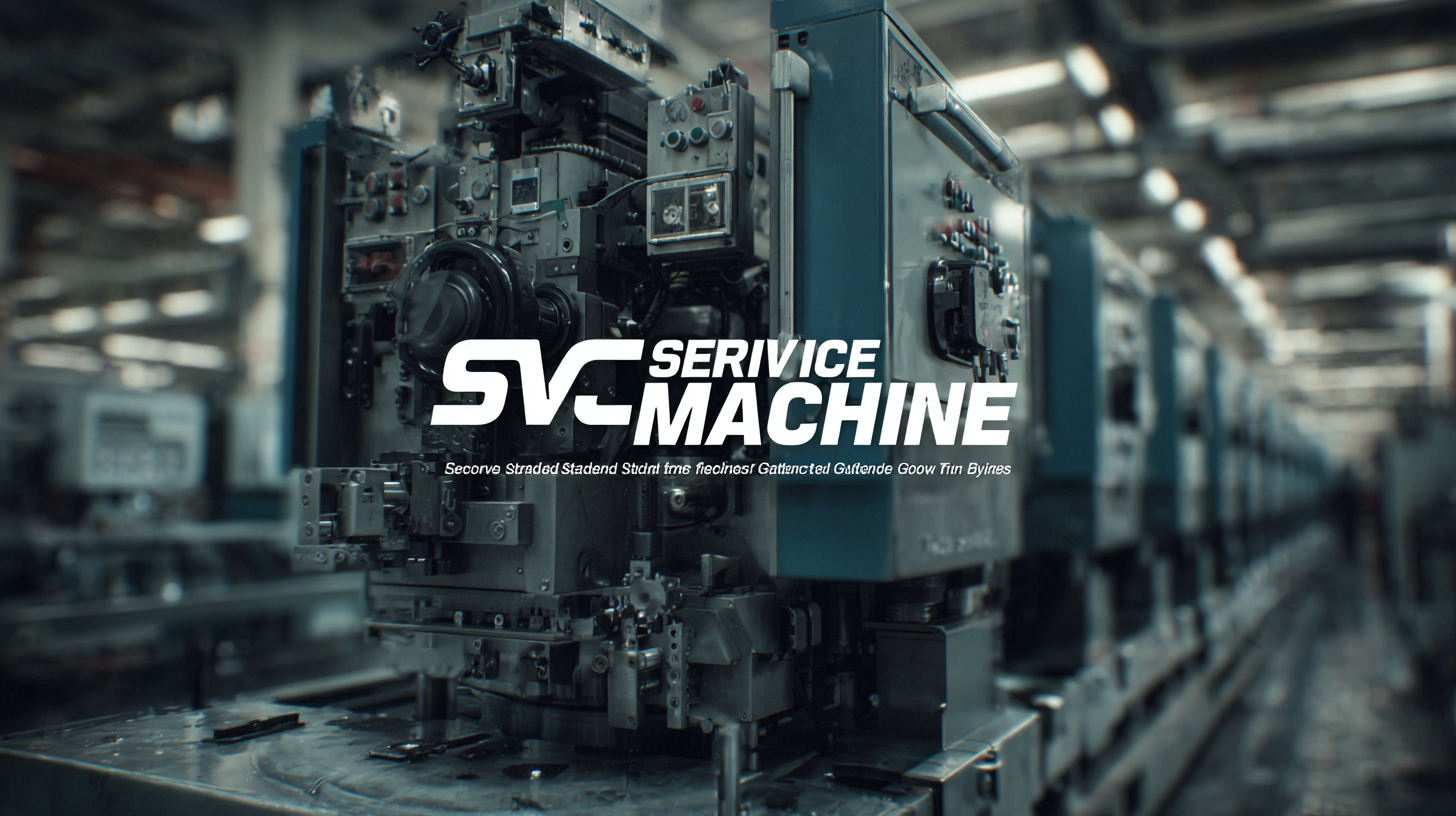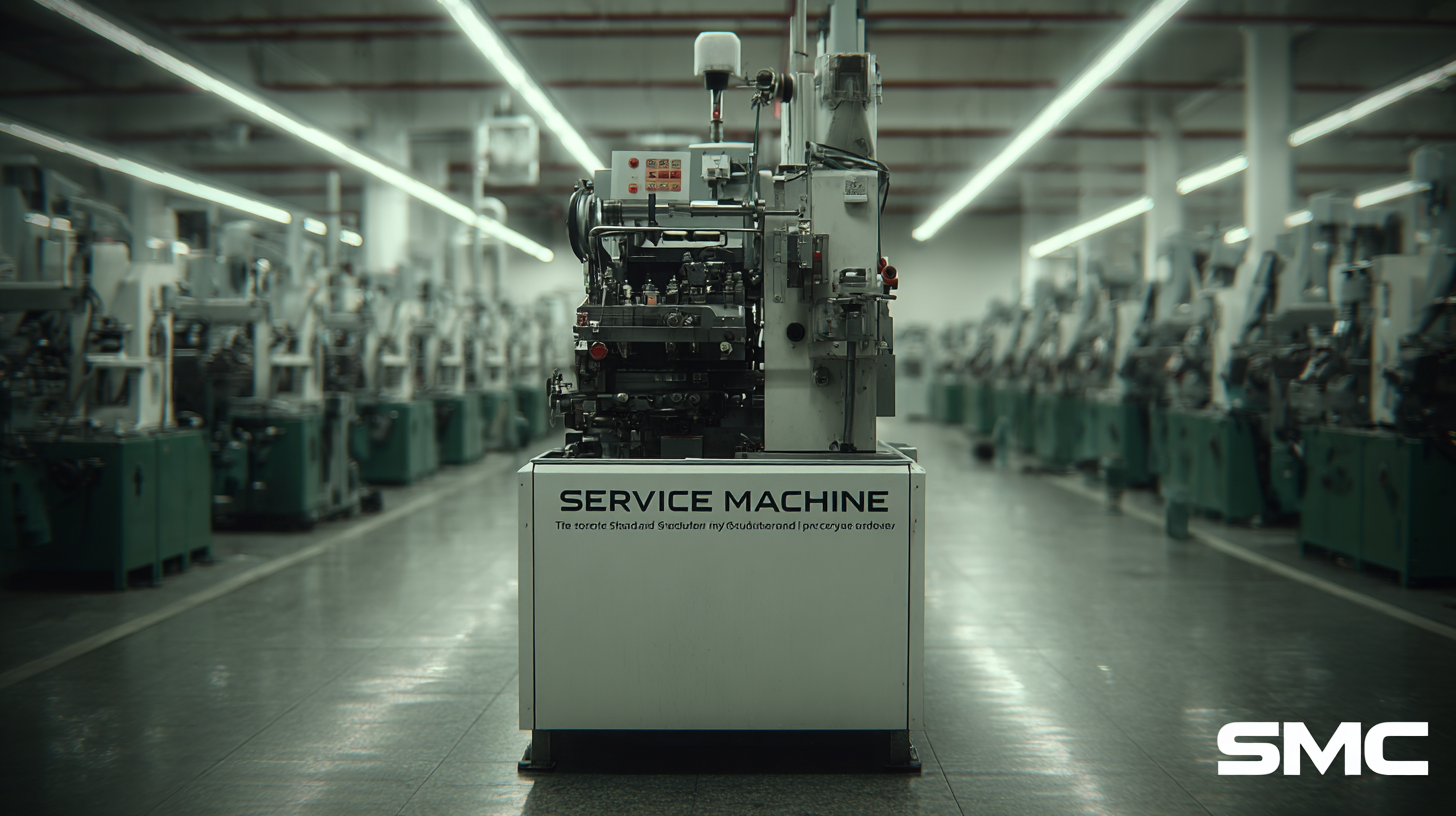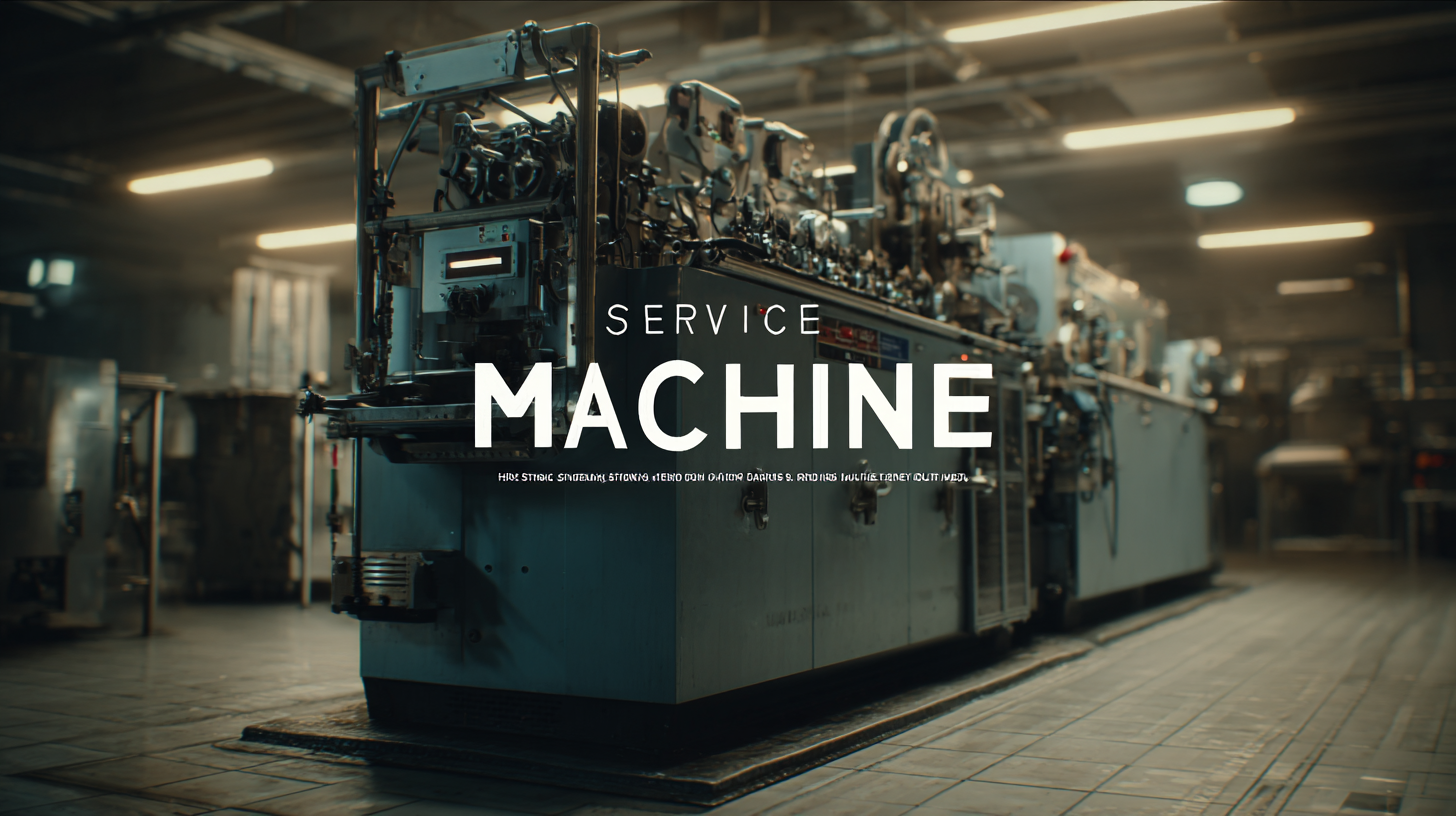Elevating Industry Standards with the Best Service Machine for Global Buyers
In today's rapidly evolving industrial landscape, the significance of high-quality service machines cannot be overstated. According to a recent industry report by Market Research Future, the global service machine market is projected to reach $2.5 billion by 2025, growing at a CAGR of 5.4%. This growth is driven by the increasing demand for efficiency and quality in manufacturing processes across various sectors. As global buyers seek to elevate their operational standards, selecting the best service machine becomes paramount.

Leading manufacturers, particularly those among the top-ranked factories for exports worldwide, are consistently innovating to meet these demands, ensuring they deliver not only exceptional products but also unparalleled service. By leveraging cutting-edge technology and robust customer service, these suppliers are setting new industry benchmarks, ensuring their place in an increasingly competitive market landscape.
Understanding the Impact of Service Machines on Global Industry Standards
The introduction of advanced service machines has revolutionized the global industry standards across various sectors. These machines not only enhance efficiency but also ensure consistency in service delivery, which is crucial for maintaining competitive advantage. With the integration of cutting-edge technology, service machines are capable of performing complex tasks that were once reliant on human labor, thus reducing the margin for error and improving overall productivity. As businesses strive to meet consumer demands for quality and speed, the role of service machines in optimizing operations cannot be overstated.

Moreover, the impact of service machines extends beyond operational efficiency; they play a vital role in shaping customer experiences and expectations. For instance, in retail environments, automated checkout systems and inventory management tools not only streamline processes but also provide data analytics that can inform better business decisions. This transformation leads to higher satisfaction rates among consumers, who increasingly prefer quick and reliable service. As global buyers continue to seek the best service, companies must adapt by investing in innovative service machines to elevate their operational standards and meet the evolving needs of the market.
Key Factors to Consider When Choosing Quality Manufacturers
When it comes to choosing quality manufacturers in a rapidly growing global market, several key factors come into play. With the global machine vision market expected to witness significant growth from $11.61 billion in 2024 to $22.59 billion by 2032, buyers must prioritize manufacturers that demonstrate innovation and reliability. This growth trajectory signifies an increasing demand for advanced technological solutions, which necessitates robust support from quality manufacturers capable of meeting these evolving needs.

One of the primary factors to consider is the manufacturer's reputation in the industry. A solid track record for delivering consistent quality and effective service is essential for buyers who want to ensure a return on investment. Additionally, the ability to provide tailored solutions that cater to specific industry requirements can significantly enhance a buyer's operational efficiency. Factors such as responsive customer service, transparency during the negotiation process, and a commitment to sustainability also play a critical role in establishing a long-term partnership. Ultimately, comprehensive due diligence can help buyers strategically navigate the expanding market while ensuring they align themselves with manufacturers that uphold the highest industry standards.
Evaluating Manufacturer Reputation and Customer Reviews
When selecting the best service machine for your business, evaluating manufacturer reputation is crucial. A reputable manufacturer not only ensures the quality and reliability of their products but also reflects their commitment to customer satisfaction. Researching their industry standing can provide insights into their performance history, innovation, and service support. Look for manufacturers with a proven track record, as these companies typically invest in better technology and adhere to high production standards, ensuring you receive a durable and efficient service machine.
In addition to reputation, customer reviews provide invaluable firsthand experiences that can help inform your decision. Real-world feedback highlights the strengths and weaknesses of specific models and can reveal potential issues that may not be apparent in technical specifications. Pay attention to detailed reviews—those that discuss customer support, longevity, and ease of use. A well-rounded understanding of user experiences can guide you towards a service machine that not only matches your operational needs but also enhances your overall service quality, ensuring you make a wise investment for your business's future.
Exploring Advanced Features of Leading Service Machines
In today's rapidly evolving technological landscape, the quest for enhanced service machines has become paramount for global buyers. These advanced machines not only elevate industry standards but also provide indispensable features that cater to the diverse needs of businesses across various sectors. From the automation of routine tasks to the adoption of cutting-edge technologies, the best service machines offer functionalities that enhance efficiency and productivity.
The latest innovations in service machines showcase remarkable features such as real-time analytics, predictive maintenance, and seamless integration with existing systems. For instance, some machines are equipped with AI-powered capabilities that allow them to learn and adapt to user preferences, ensuring a customized experience. Furthermore, with the rise of AI-driven solutions in fields like autonomous driving and medical diagnostics, the potential applications for advanced service machines are limitless, creating new opportunities for businesses to optimize their operations and improve customer satisfaction. Embracing these technological advancements is crucial for any organization aiming to remain competitive in a global marketplace.
Service Machines Performance Comparison
Strategies for Effective Communication with Potential Manufacturers
Effective communication with potential manufacturers is crucial for global buyers seeking top-tier service machines. To initiate a successful partnership, it is essential to establish clear expectations from the outset. Begin by providing detailed specifications of the product you require, including design preferences, technical features, and any compliance standards. This not only minimizes misunderstandings but also helps manufacturers understand your specific needs.
Tip: Use visual aids such as diagrams or charts to convey your requirements more effectively. This can bridge language barriers and ensure that both parties have a mutual understanding of the project.
Additionally, maintaining an open line of communication throughout the manufacturing process fosters transparency and trust. Regular updates and feedback help address any issues before they escalate. It’s important to be approachable and encourage questions from the manufacturers, as this facilitates collaboration and promotes a smoother production journey.
Tip: Schedule regular video calls to discuss progress and any potential complications. Face-to-face interactions can enhance relationships and clarify any complex aspects of the project.
